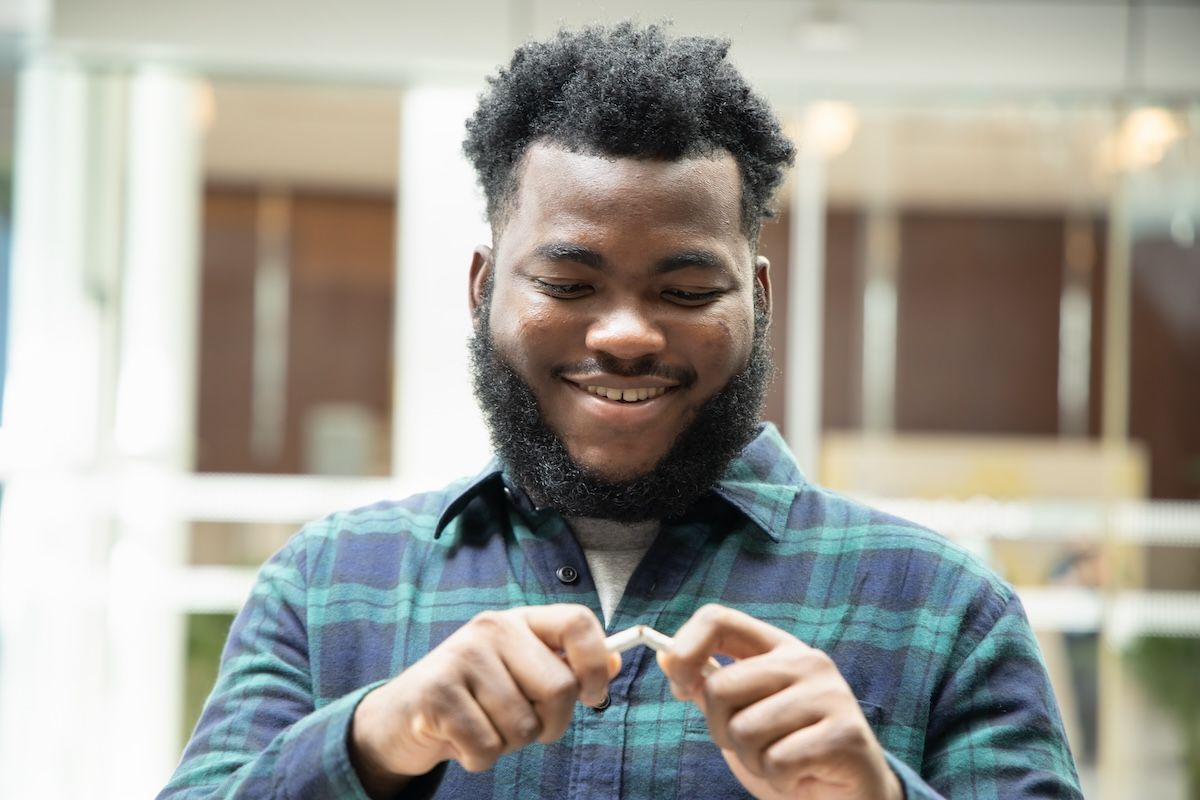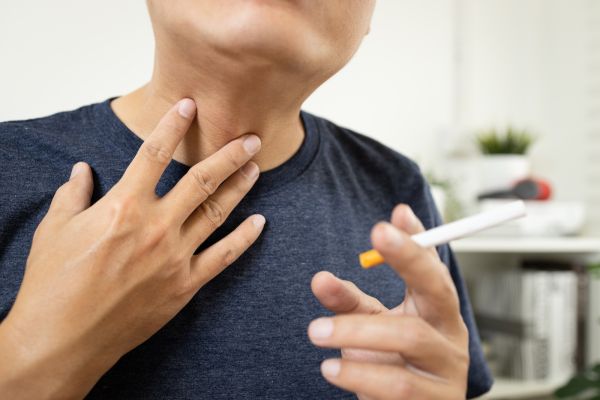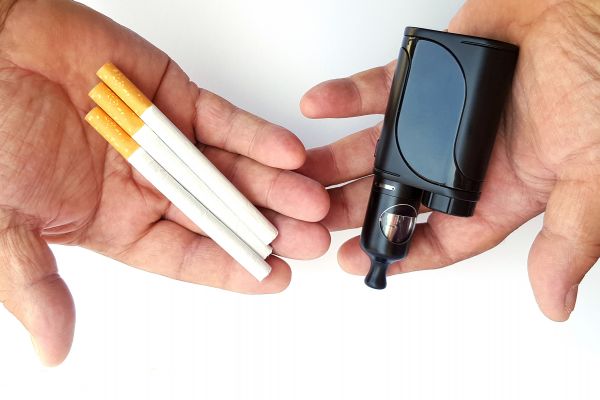While she is not someone who smokes, tobacco plays a big role in Sarah Pearson-Collins’ family history. No one in her household smoked when she was growing up, but when she took a step back, she noticed tobacco was a looming presence.
“When I started looking at the tobacco burden from a more extended background and even started to kind of trace it back historically, I started to realize, this has really affected a lot of my family,” says Pearson-Collins, Director of Training, Development and Support for Roswell Park Comprehensive Cancer Center Cessation Services. She helps train people to counsel those who want to quit smoking.
“From the very beginning, coming over from Africa, having to work on tobacco plantations, Black people were planting it, picking it and smoking it.” Pearson-Collins’ great-grandmother was born enslaved on a tobacco plantation; her grandmother had 10 children, seven of whom were smokers. And she has an elderly aunt who, despite needing to rely on an oxygen tank as a result of her diminished lung capacity due to COPD, continues to smoke.
“You can see the generational reach. It’s still affecting our family really intensely,” she says. “In the ‘80s and ‘90s, I started seeing folks getting sick, uncle after uncle after aunt getting sick, in different ways. You started seeing rheumatoid arthritis and a lot of the inflammatory autoimmune disorders and things people don’t realize are connected to smoking.”
Tobacco, and mentholated tobacco products in particular, have been aggressively marketed to Black communities for generations, Pearson-Collins says. Even smoke-less and smoke-free products — from tobacco pouches to vape pens and e-cigarettes — continue to promote menthol and other flavored products to entice younger users to pick up smoking or other tobacco items, continuing the pattern. In recent years there has been an effort to pressure tobacco companies to reduce their marketing efforts around mentholated products, especially in the Black community.
Ads offered the promise of a different life
Tobacco companies often use their advertising dollars to target the Black community by historically providing generous donations to organizations like the NAACP, sororities, fraternities and other groups. They also placed full-page ads in publications like Jet and Ebony magazines that market a glamorous, successful, luxurious lifestyle to young Black people.
“I used to go to the Ebony Fashion Fair back in the day, when the event took place at the State University of New York at Buffalo,” Pearson-Collins says. “Tobacco companies were big sponsors. They’d take out these big ads because they knew Ebony had a big readership. They were constantly promoting (cigarettes). They made smoking look so good. If you look at an oppressed group of people, or a marginalized group, you advertise what they aspire to be or do. In the 1960s, we had the ‘Black is Proud’ movement and you saw tobacco marketing in favor of that.”
Roswell Park’s own research indicates that lung cancer is the third most-common kind of cancer in the Black community in Western New York, with an incidence rate of 76 cases per 100,000 people. Between 2016 and 2020, a total of 7,537 cases of lung cancer were diagnosed in Western New York, making it the most prevalent type of cancer in the region. Lung cancer also is the leading cause of cancer-related death in the United States, representing three of every 10 cancer-related deaths.
“Tobacco companies incorporate menthol because it makes the products so much more palatable,” Pearson-Collins says.
Check your risk levels
Roswell Park offers a lung cancer risk assessment and screening tests to those at high risk. Learn whether you’re eligible.
Complete the risk assessment form Lung Cancer Screening Program
Traditions can be changed with help from scientists
She wants to help break this generational trait, not just in her family but for others who have a similar history. As a smoking cessation trainer, she helps inform and prepare tobacco specialists who work with people who want to quit smoking, helping them understand it’s not just as simple as putting down the cigarettes, or picking up a nicotine patch or nicotine gum to change their routine.
“By combining the smoking cessation aids with counseling, it doubles your chances of quitting,” she says. “I think the most important thing is to be able to understand the behavioral component of smoking as well. As with any behavior you want to change, there’s a cognizant behavioral approach to take. Everything we do is evidence-based or best practices."
In a community where therapy and counseling are not common or comfortable practices, reaching out for help can be a difficult hurdle to clear.
“In the Black community, you hear ‘Give it to God.’ That’s fine, but there’s also help. Just like if you have cancer, you’re going to go to a doctor that specializes in it. Prayer is powerful, yes, but God works through the doctors and the scientists who create these medications and these new technologies.”



